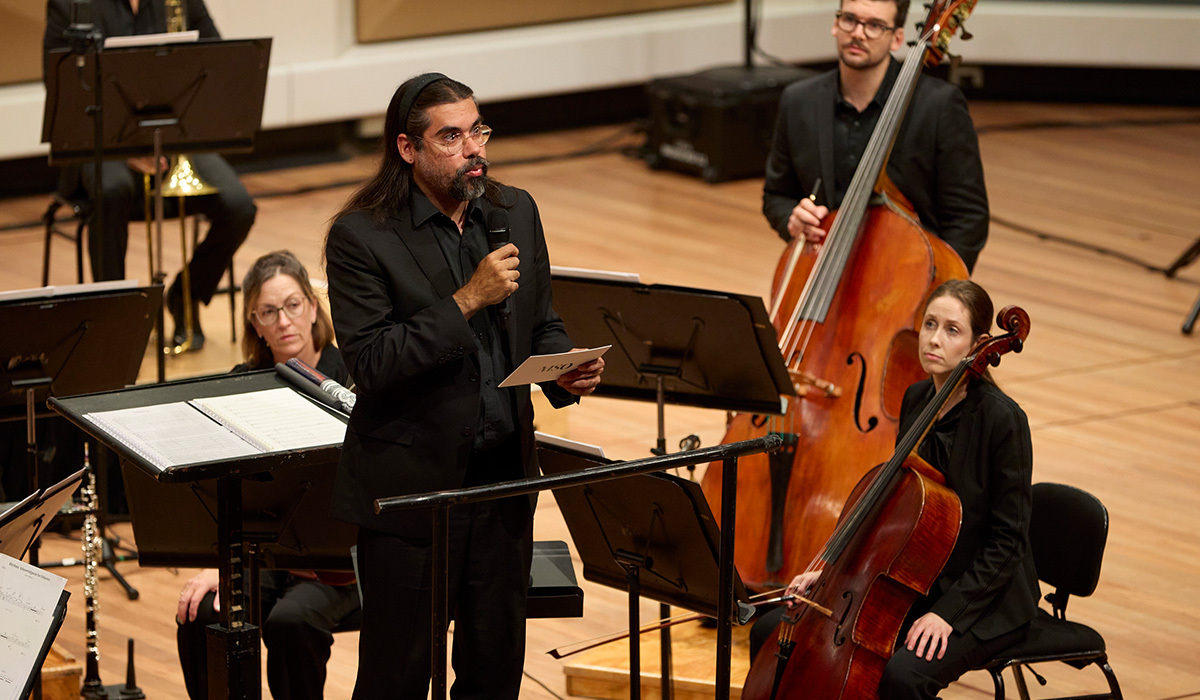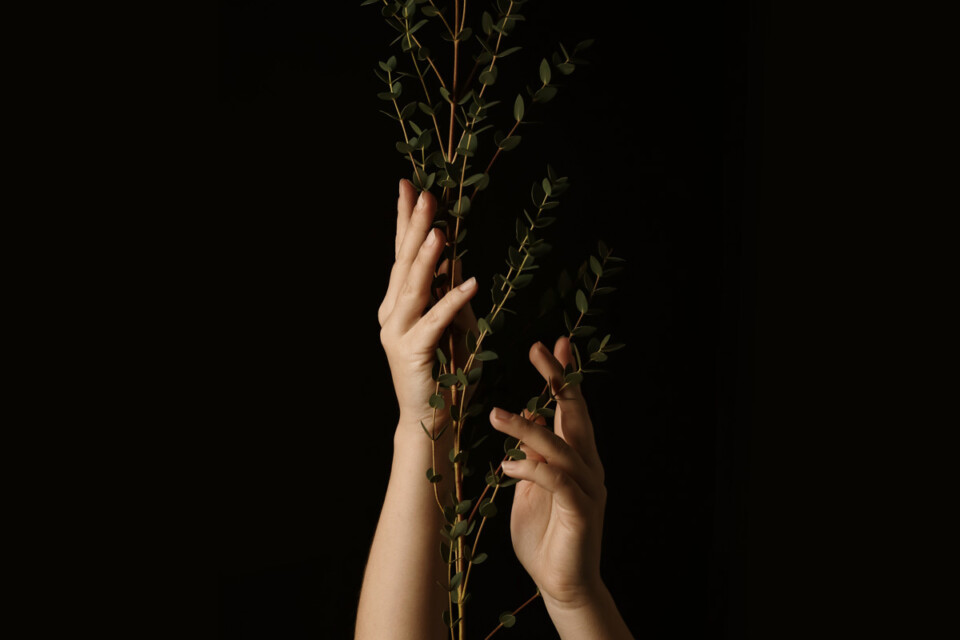A musical polymath, Aaron Wyatt’s output and range is quite something. The violist, violinist, conductor, composer, programmer, and academic shares what’s next after conducting MSO’s First Nations Showcase last year, proudly supported by Equity Trustees.
It’s three days out from the premiere of Aaron’s new Melbourne Fringe Festival work, Digital Echoes. Wearing a serious pair of headphones, and with a keyboard and sheet music to his right, he explains how the piece pushes the limits of sound and digital technology to explore classical music in a new form.
“During the pandemic, I helped to further develop this software called JackTrip (a system for high-quality audio performance over the internet, initially developed out of Stanford University in the US). For Digital Echoes I’m using it to bounce the sound of the viola back from remote nodes around the country, before having it played through transducers attached to percussion instruments to create new, hybrid sounds. It’s almost as if the internet was a room, with the audio reflecting off a series of walls. But instead of creating reverb, it creates an audible delay.”
It’s easy to see how Aaron had a choice between pursuing music, or a scholarship in engineering. Equal parts creative and curious, he credits the youth orchestra system in Perth for helping nurture his career aspirations.
Of his early playing days though, he gives himself a blunt assessment.
“It's not like I was some child prodigy. I didn't particularly practice a lot,” he recalls. “The youth orchestra was as much a social thing as a musical thing, and it taught me a lot about sight reading because I never used to practice my parts - not something I'd necessarily recommend to younger musicians!”
Post youth orchestra, Aaron could be found onstage at the West Australian Symphony Orchestra over the next decade, but also found himself conducting community and school orchestras in metropolitan and regional Western Australia.
“That was very handy in that you read through a lot of repertoire, a lot of really big repertoire. But the big issue as a young conductor is finding time in front of ensembles,” Aaron says.

Opportunities to do so have come from the MSO, and in particular, through the generous support of the Sage Foundation, who support Aaron’s development through a First Nations Conducting Mentorship.
“Next year, I'm doing the Australian Conducting Academy with Ben Northey and the various state symphony orchestras, and I was lucky enough to already sit in on one of the sessions this year with the MSO. It's just invaluable having a chance to actually work with the orchestra and, as confronting as it is, to watch yourself back on video.”
“It's good to see what the musicians are actually seeing and how much it deviates from what you think you're communicating.”
Aaron acknowledges that private philanthropy, the likes of which saw MSO patrons Equity Trustees supporting a First Nations Showcase earlier this year, is vital to giving emerging musicians the chance to play on the main stage.
“Philanthropy is hugely important. We're lucky there’s support for the major performing arts organisations. It's great there’s private philanthropy here, because it does make up those shortfalls that inevitably happen, and they do allow our arts organisations to function.”
Juggling multiple musical hats is the order of Aaron’s schedule for 2025.
“There’s a kids concert with Eliza Shephard; another First Voices Showcase and Seasons will look at works from Indigenous composers inspired by Indigenous seasons, rather than the traditional summer, autumn, winter and spring. We’ll be working with language consultants to include language into the performance.”
Aaron smiles, reeling off a list of musical engagements that would intimidate many. After spending just a short amount of time in his company, one gets the distinct impression he wouldn’t want it any other way.

Seasons
28 & 29 March at 7.30pm
Arts Centre Melbourne, Hamer Hall